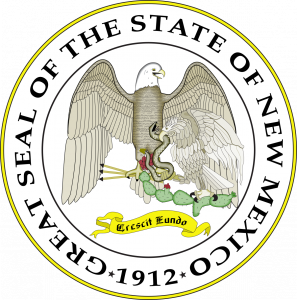
The New Mexico Court of Appeals has held that a multinational oil and gas production company did not constitute a “unitary corporation” with its foreign subsidiaries, pursuant to statutory carve-out language regarding the term “unitary corporation.”
Taxpayer Apache Corporation’s (Taxpayer) foreign subsidiaries issued dividends, generated Subpart F income, or otherwise generated check-the-box income attributed to and partially reported by Taxpayer on its 2015 federal tax return. A New Mexico Administrative Hearing Officer (AHO) concluded the foreign subsidiaries could be included in the “unitary corporation” of Taxpayer as a matter of statutory definition and factual circumstance. However, the New Mexico Court of Appeals reversed the AHO’s determination based on statutory carveout language excluding foreign subsidiaries that are not engaged in a trade or business in the United States from “unitary corporation.”
Specifically, then-existing N.M. Stat. Ann. § 7-2A-2(Q) (1978) defined “unitary corporations” as:
[T]wo or more integrated corporations, other than any foreign corporation incorporated in a foreign country and not engaged in trade or business in the United States during the taxable year, that are owned in the amount of more than fifty percent and controlled by the same person and for which at least one of the following conditions exists:
-
- there is a unity of operations evidenced by central purchasing, advertising, accounting or other centralized services;
- there is a centralized management or executive force and centralized system of operation; or
- the operations of the corporations are dependent upon or contribute property or services to one another individually or as a group. (Emphasis added.)
The New Mexico Court of Appeals disagreed with the AHO’s analysis that a “foreign corporation’s contribution of value, as demonstrated by meeting the subparts of the statute, to the domestic entity engaged in New Mexico business activity would necessarily mean it had engaged in activity in the United States through its unitary relationship with the domestic corporation.” The New Mexico Court of Appeals concluded the AHO’s analysis “negates the existence of the carve-out,” and thus “would cease to have any effect. So long as the three unities test was met, the foreign corporation exclusion would be a nonsequitur. […] This cannot be.”
The case is Apache Corp. & Subsidiaries v. New Mexico Tax’n & Revenue Dep’t, Docket No. A-1-CA-39961 (N.M. Ct. App. June 17, 2024). The opinion is available here. The statute during the year at issue is available here, and the current version of the statute—which now defines “unitary group” without statutory carve-out language for foreign corporations—is available here.
 SeeSALT Blog
SeeSALT Blog

